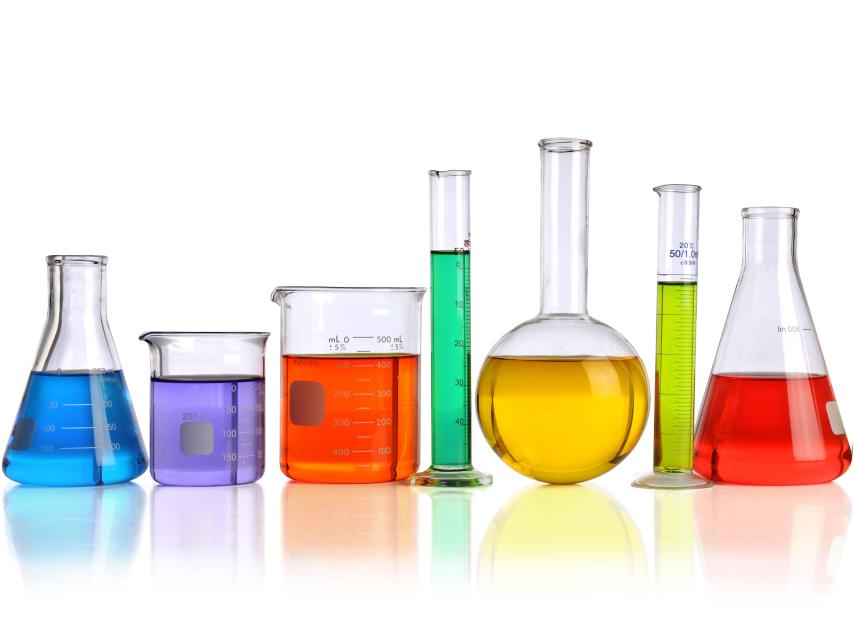Battery Electrolyte Inorganic Impurity Testing
Understanding battery electrolytes is crucial in modern electronics and energy storage systems. Battery electrolytes are the heart of lithium-ion batteries, providing a medium for ionic conduction within the cell. The quality and purity of these electrolytes directly influence the overall performance, safety, and lifespan of the battery. Inorganic impurities can significantly impact the efficiency and stability of the electrolyte, leading to reduced performance or even operational failures.
Inorganic compounds such as arsenic, cadmium, lead, mercury, selenium, molybdenum, tungsten, and vanadium are often found in trace amounts within battery electrolytes. These impurities can degrade the ionic conductivity of the electrolyte, increase corrosion rates, and potentially cause thermal runaway or other safety hazards. Ensuring low levels of these contaminants is essential for maintaining high-quality performance.
Our laboratory provides comprehensive testing services to identify and quantify inorganic impurities in battery electrolytes. Using advanced analytical methods, we can pinpoint even the smallest traces of impurities, providing detailed reports that aid in quality control, compliance, and product optimization. This service supports not only the immediate needs of manufacturers but also ensures adherence to international standards such as ISO 17025.
Our approach involves meticulous sample preparation, followed by precise analysis using techniques like Inductively Coupled Plasma Mass Spectrometry (ICP-MS) and Atomic Absorption Spectroscopy (AAS). These methods allow for accurate detection of inorganic elements down to parts per billion levels. Our team of experts ensures that each test is conducted with the highest precision, delivering reliable data that can be used to improve product quality and ensure regulatory compliance.
By leveraging our expertise and state-of-the-art equipment, we offer a tailored testing service specifically designed for battery electrolytes. This includes not only the identification of impurities but also the assessment of their impact on battery performance. Our comprehensive reports provide valuable insights that can guide R&D efforts and support procurement decisions.
We understand the importance of this service in ensuring safe and efficient energy storage solutions. By partnering with us, you gain access to a robust testing framework that meets your specific needs while adhering to international standards.
Why It Matters
The significance of battery electrolyte inorganic impurity testing cannot be overstated. In the context of modern electronics and renewable energy, batteries are critical components that power our devices and enable sustainable practices. Ensuring the purity of these electrolytes is essential for several reasons:
- Enhanced Performance: Lower levels of impurities can lead to improved ionic conductivity and overall battery performance.
- Increased Safety: Reducing impurity levels minimizes the risk of thermal runaway, which could result in fire hazards or explosions.
- Extended Lifespan: Purer electrolytes contribute to a longer lifespan for batteries, reducing waste and environmental impact.
- Compliance with Standards: Adhering to international standards like ISO 17025 ensures that your products meet regulatory requirements and industry expectations.
- R&D Optimization: Detailed test results can help in optimizing the formulation of electrolytes, leading to better product development.
- Improved Procurement Decisions: Reliable data from our tests helps procurement teams make informed decisions about material sourcing.
In summary, by investing in comprehensive testing for inorganic impurities in battery electrolytes, you ensure the highest quality products that are safe, efficient, and compliant with industry standards. This not only enhances your brand reputation but also contributes to a more sustainable future.
International Acceptance and Recognition
Battery electrolyte inorganic impurity testing is recognized globally for its critical role in ensuring product quality, safety, and compliance with international standards. Here are the key international standards that we adhere to:
- ISO 17025: This standard ensures that our laboratory meets the highest level of technical competence and quality management systems.
- ASTM D6398: Provides a method for determining the total sulfur content in lithium-ion battery electrolytes, which is crucial for assessing impurity levels.
- EN 50641: Covers the safety aspects of Li-ion batteries and can be used to ensure compliance with electrical safety standards.
- IEC 62133: Specifies the requirements for the safety of rechargeable cells, modules, and packs intended for use in electric road vehicles. This ensures that your products are safe and reliable.
Beyond these standards, our laboratory is accredited to meet the stringent requirements set by various regulatory bodies around the world. Our services are recognized not only in Europe but also across Asia and North America, ensuring that you can trust our results regardless of where your target market may be.
The international recognition of our testing methods and facilities ensures that your products will meet the highest standards required for global distribution. By partnering with us, you gain access to a network of trusted laboratories that adhere to these stringent requirements, providing confidence in both product quality and regulatory compliance.
Use Cases and Application Examples
Battery electrolyte inorganic impurity testing has wide-ranging applications across various industries. Here are some specific use cases:
| Industry | Purpose of Testing |
|---|---|
| Lithium-ion Battery Manufacturers | To ensure the purity and consistency of electrolytes used in battery production. |
| Electronics OEMs | To verify that their suppliers meet stringent quality standards for electrolyte components. |
| Solar Panel Manufacturers | To assess the compatibility of electrolytes with photovoltaic systems and ensure long-term stability. |
| Automotive Companies | To validate the safety and performance of Li-ion batteries used in electric vehicles. |
| R&D Labs | To explore new formulations and optimize electrolyte compositions for enhanced battery performance. |
| Regulatory Bodies | To enforce compliance with international standards and ensure product safety. |
In addition to these industries, our testing services are also valuable in academic research aimed at advancing the science of energy storage systems. By providing accurate data on impurity levels, we support a wide range of applications that rely on high-performance battery electrolytes.





